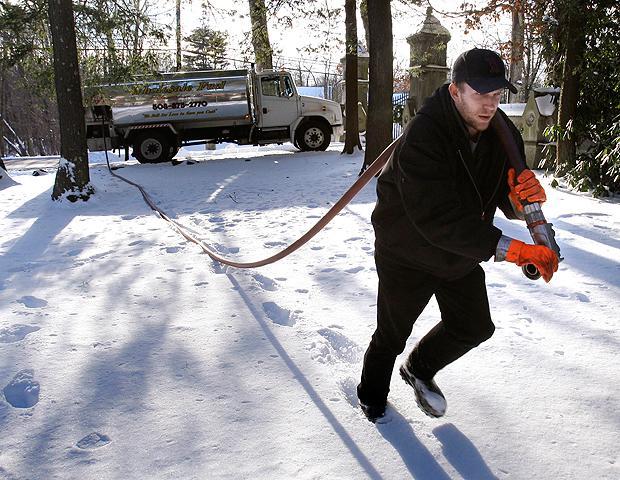Advertisement
Demand Outpacing Supply For Heating Oil Aid
Resume
With the price of home heating oil hovering near $3 a gallon, a 20 percent increase over last year, and stagnant levels of assistance, many families across Massachusetts are struggling to heat their homes this winter.
"Just in Boston alone, there are approximately 7,000 families that receive assistance," said John Wells, a vice president with Action for Boston Community Development, Inc. (ABCD), a local anti-poverty organization, in an interview with WBUR's Bob Oakes.
"The majority of those have exhausted their benefits," Wells went on. "Even 100 gallons, the minimum delivery, costs about $300, which is beyond the means of the majority of our clients. So it's very hard for them to juggle those kinds of decisions. They really literally have to make a decision if they are going to buy food or try to set that money aside to get that 100 gallons of oil."
The dire situation for struggling families is one of simple economics: The supply of available aid is limited, while the demand for such aid is on the rise.
The state was allocated $5.1 billion in federal heat aid this year, the same amount as last year, but not all of that money has been released yet. On top of that, Wells said, there's the increased demand, "so when you take the same dollars and spread it over the larger population of demand, that's the reason there's less benefits for everybody."
"In the space of two years, the statewide demand for fuel assistance has risen from about 160,000 families to this year we're projecting about 245,000 families," he said. "That is a huge increase we've really never seen over such a short time period since we've been running this program, and that's been over 30 years."
"They really literally have to make a decision if they are going to buy food or try to set that money aside to get that 100 gallons of oil."
-- John Wells, Action for Boston Community Development, Inc.
ABCD, which primarily aids clients located in eastern Massachusetts, prides itself on being able to assist all needy families. That, of course, reduces the benefit for each client.
"The good news is that we work closely with the state to design a program where everybody who comes in for a benefit will get that benefit," Wells said. "But what that means is basically a lower benefit for the whole population. And what that means, what we're facing right now, is once you use that benefit maximum, which ranges from about $600 to $900, there's really no other benefit you could get."
A standard oil tank is 250 gallons, meaning the maximum benefit would be equal to just about one full tank. According to Wells, a typical family goes through three to four tanks in an average New England winter.
Though the federal government did release some additional funding for heating assistance last week, Wells said that his organization is looking for more. "What they released last week is not going to get people too far into the next few weeks," Wells said.
Click "Listen Live" to hear the interview with John Wells.
This program aired on January 26, 2010.